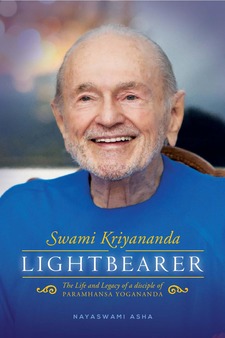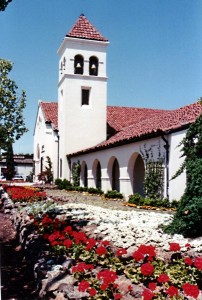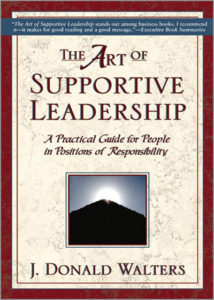
I’d like to share with you a beautiful passage from Whispers From Eternity:
#151 Lead my body chariot on the Right Path. (Inspired by the Hindu Scriptures)
Teach me, Thou, to conquer myself by myself. Bless me, that my discrimination may be the charioteer of the steeds of my five senses, holding properly the reins of my mind. Let my soul, in the little chariot of the body, on the wheels of discipline, drive triumphantly over the speedway of many earth-lives, until on the last lap of the last race it shall find itself safe in the limitless royal chariot of the King of Kings!
I love the phrase, “the last lap of the last race.” It reminds me of the passage in the Bible where St. Paul is about to be executed and he says these marvelous words:
“I have fought a good fight, I have finished my course, I have kept the faith: Henceforth there is laid up for me a crown of righteousness, which the Lord, the righteous judge, shall give me at that day: and not to me only, but unto all them also that love his appearing.” (2 Timothy 4:7-8)
Earlier this morning I listened to one of the last recordings Swami Kriyananda made. It was part of a series of television programs that he created in India, called “Ask Me About Truth.”
He recorded them with Nirmala and Dharmadas, lifelong friends who pretended for the sake of the recording to be less well-informed than they actually were, so that they could ask questions that people might like Swami to answer. It’s one of my favorite recordings, because it’s so at ease, and their longstanding friendship and relationship as devotees continually breaks through.
Swami sits in a comfortable chair with a microphone clipped to his garment, and Nirmala and Dharmadas come forward with questions that people might be interested in. And the quality that strikes me, again, is that there’s such a sense of relaxation about it.
Those recordings were made near the end of Swami’s life, perhaps in his final year, when there was no longer anything at stake and nothing further to be accomplished, because everything had been done.
For Nirmala and Dharmadas also, many long years of devotion to the path of service and friendship to Swamiji were coming to fruition, and you can feel it.
One of the questions they asked was, “What has been your greatest accomplishment?” And Swami’s answer was remarkably simple. He said, “I guess I just hung in there.”
Nirmala protests, “But you’ve had so many obstacles in your life! And how have you been able to overcome all of the tests?”
Swami shrugs, “What was my choice? – to shoot myself? I didn’t want to do that.” And he adds, “It had to be done, so I did it.”
And then he became more serious, and he talked about accepting whatever God gives us, and trusting Him.
I’m sure we could think of many ways to expand upon his simple words. But he was surely saying the truth – “What else could I do?”
It was St. Peter’s answer also, when Jesus asked him at the end his life, a time when many were leaving him, “Are you going to leave, too?” And Peter said, “Where could I go?”
What can I do? I can’t just shoot myself. If it has to be faced – all of the confusion and the tests – what am I going to do? I just have to hang in there.
I was thinking of the ease with which Swamiji spoke at the end of his life. And of course he was like that throughout all the years that came before, but there was a different quality at the end.
When the commission that Master had given him was still before him, we were always aware of a powerful current of unrelenting willpower in his life.
When you’ve been given a task, and the task isn’t something that is within your own power to create, and you’re pushing hard against forces that are either actively opposing you, or that are simply the usual obstacles we have to face when we’re creating something new, you have to summon tremendous energy. And it’s particularly true when we are, as Swamiji was, and as we are, disciples of a great master who’ve been tasked with establishing a new reality on this planet, and there’s a shadow force that’s coming out against the light, as it inevitably will.
And even if it isn’t an active dark force, there will be the inertial resistance of delusion that we will have to overcome. And it’s not simply a matter of what we are already able to accomplish with ease, because it requires a constant, unrelenting, deliberate focus of willpower to break through the barriers.
Whenever I’m engaged in that kind of task, which it has been my karma to face very regularly over the years, it isn’t that I can simply put out enough energy to talk to this or that person, or to write this or that letter, because there’s a need to summon a level of willpower that will be very focused and that would never even think of giving up.
I’m thinking of 1981, when we conceived the idea of incorporating Ananda Village as a California city. It doesn’t look like much of a city now, and let’s just say that it looked even less like a city in the early 1980s.
But as one of my attorney friends remarked at the time, “Law is not intuitive. Law is not rational. Law is political, and therefore it simply is what it is, and you find out what it is and you adjust yourself to it.”
At the time, we were having a great deal of trouble getting our plans through the county system, in part because we had lots of opposition from our neighbors. We wanted to have control over the use of our own land – planning, zoning, and so on – and the entity in California that has that kind of control is a municipality, a city.
There were two women in the community who were attorneys, and one of them carefully researched the issues and discovered that – what do you know? – we could qualify as a California city. And wouldn’t that be fun?
After I had signed on to be one of the spearheads of the movement, one of my good friends, Ananta, who has a great sense of humor, began calling me “Madam the Mayor.” Ananta was the head gardener, and whenever he would see me coming he would pull himself up straight and call the other gardeners to line up in a row, and they would stand at attention and salute Madam the Mayor. So we had a lot of fun.
The project lasted eighteen months, and it became more and more controversial, to the point where the final hearing had to be held in the largest auditorium in Nevada County and hundreds of people attended. The meeting went on for seven hours until 2:30 in the morning, and everybody in the room was heartily against our becoming a city, except us.
I had actually received a couple of death threats at that point, so it was a memorable time, and it took tremendous willpower. It was eighteen months of absolute, constant, unrelenting willpower. And then it all abruptly ended, because we lost.
We were voted down, but the county had disobeyed the state attorney general who had said that religion could not be a factor in their decision. But they had made religion a factor, so it was an unfair decision, and we were planning to go to court.
And then Swami felt Master saying, “Enough – you’ve done enough.” And meanwhile I was still forging ahead full-bore, and then all of the energy for the project suddenly ceased, and my response was that it was one of two times in my life when I got really sick with a high fever.
I said to Swamiji, “I don’t mind losing, but I’m annoyed that the people who opposed us have won.” And then the fever burned it all out of me, and when I awoke I thought, “Who cares? We’re just doing what God wants, and if this is what God wants, it’s fine with me.”

The story of our incorporation efforts is told in Swami Kriyananda: Lightbearer and Swami Kriyananda: As We Have Known Him. But it was a grand adventure, and it relates very directly to what I’m talking about today.
Looking back, I think of the period from 1971, when I moved to Ananda Village, until 1987 when I came to live in Palo Alto, as my spiritual childhood. It was sixteen years, but in the first ten or twelve years particularly we had tremendous fun getting this work of Master’s off the ground.
I often say that I grew up at Ananda. And then people will look at me and try to do the math and fail. Because I wasn’t a child when I arrived at Ananda Village, but I had to grow into an adult body before I could come to Swami, and I was twenty-two when I met him. And in all those years what we were doing was so madcap, and that’s the best way I can describe it. It was tremendously serious, but it was serious on such a serious level that it was absolutely joyful. It was the tiny bubble of laughter becoming the Sea of Mirth Itself, to quote the last line of Master’s poem, “Samadhi.”
We were living far out in the country, on a bare plot of land with very few material resources, and we were dragging a community up out of the ground. And through it all, Swamiji’s willpower was absolutely unrelenting.
He understood what we were doing, and perhaps there were others who understood, but I didn’t.
Swami had had the experience of being thrown out of Master’s organization, and having to find within himself the confidence and the willpower to continue to serve his Guru against the unrelenting opposition of his own gurubhais, all of whom were people he had loved and respected.
He had to go forward without his peers, and it took me many years to realize how much it had cost him. In my own life I thrived greatly on my peer relationships, and it wasn’t until 1993, when we celebrated the centennial of Master’s birth, that I fully understood how lonely it had been for him.
As part of our celebrations we invited a number of Master’s direct disciples, and I was able to see how much it meant to him to be with those who had shared the experience of living with Master.

It was always very dynamic to my emotional life that Swami was the grown-up and I was the child. He was the father of my heart and spirit in such a profound way that I always felt safe and secure, and whatever happened, I had a detachment about it that I only realized much later was truly effortless.
Now, I don’t want to exaggerate, because I was no saint. But on a very fundamental level I did my little bit with my whole heart; for example, with the incorporation effort and any number of other strange projects we got involved in.
I gave everything my whole heart, and my complicated inner life sometimes caused my best efforts to be less notable and effective than I might have liked, but nonetheless they were the best I could offer. And if things fizzled or if they worked, or if they seemed strange to other people, I never worried about any of it, because I was a child and my father had it covered. And to a certain extent, that was exactly the right attitude. And in many ways it was a better attitude than I would develop later on.
It began to change when Swami pushed me out of the nest, so to speak, and he sent me traveling and giving classes, and eventually to Palo Alto to build upon what had already been developed here. And then all of a sudden, even though Swamiji was still there, I suddenly found other people thinking that I was the grown-up in the room.
I think that’s basically what happened, and it was a really good joke. But nonetheless, I fell for it sometimes. And the absolute confidence that came from thinking “What difference does it make?” was gradually replaced by the illusion that I was making decisions, and that my complicated inner life which had often interfered with my effectiveness was now something to worry about, more than I had worried about it before.
There’s a legal term that I love, that we learned during our years of litigation: “dispositive.” I’ve never heard it except in a legal context. But there would be an argument, and it would be “dispositive,” which meant that it would dispose of the issue. And you could have a good argument, but it might not be dispositive.
At any rate, my own decisions had never mattered before, because they weren’t dispositive. They weren’t going to decide the issue one way or another, because Swamiji was the polestar, and as long as I was moving in harmony with whatever he asked me to do, it didn’t matter.
The other madcap adventure that he got me involved in was when he started the Bicentennial Liberty Committee. You’ve heard me talk about it, and it’s written in my books.
It was an effort to get the local county planning director fired and replaced with a qualified professional, because her lack of professional skill was completely blocking the development of Ananda. So we launched a political movement, and my English name was Nan Savage, if you can believe it. So I became Nan Savage, secretary of the Bicentennial Liberty Committee. We were operating incognito, and we didn’t bring Ananda’s identity into it, so Swami was Donald Walters, president of the Bicentennial Liberty Committee.
Swami knew that the way to appeal to me was to awaken my childlike enthusiasm for something that wouldn’t burden me, and that I could just do. So I went out on the street and collected signatures, and I wrote letters to the editor, and I held meetings with citizens, and I went to the Board of Supervisors’ meetings and read declarations and proclamations. And anyone from Ananda who was present in those meetings was always a breath of fresh air, because we were kind, and we were fair, and we could see all sides. And, God knows, I had done this for many lifetimes, and I just knew what I had to do.
We got a lot of respect, and eventually the planning director was fired. But I never worried about any of it, because I was following what Swami wanted me to do.
During the years when we were trying to make Ananda happen here in Palo Alto, establishing the community and getting the school going, and acquiring this temple, there were times when all of our efforts would blow up in our faces.

There was an occasion when our entire staff actually rebelled. At the beginning of a weekend team-building retreat they informed us that we were completely out of tune, and they didn’t approve of anything we were doing. So then we got to spend three days together in a team-building exercise, and that was memorable.
There were a couple of times when the school imploded and nearly went crashing to the ground, and we had to wait until it could sort itself out and blow over.
Those are just a couple of the crises that come to mind, among many others. And linked with the unrelenting willpower that was required, our policy was always the same: “It doesn’t matter what the storms may bring, we will stand here, and when the storms pass we’ll reassess and rebuild with what’s left.” And there was never much time to think about the nuances.
But then I began to realize that I had lost the original childlike freedom that I had enjoyed in the first ten or twelve years with Swamiji. And as I reflect on it now, I think that part of it is beautifully defined by something Swami said: that you can have the wisdom of innocence, and you can have the wisdom of experience.
To illustrate his meaning, Swami used the example of a five-year-old girl who was asked by a five-year-old boy, “Are you a virgin?” And she answered, “Not yet.” Which was true, because she wasn’t yet of an age where she could even understand the question, and she would have to grow into the reality of temptations and the potential of sensuality in human life before she could respond intelligently.
There was a time in my spiritual life where I began to understand the path more deeply. I was putting out full energy – and I have a lot of it, and I used it all. And maybe a lot of it was going in circles instead of a straight line, but nonetheless I was doing my best. But I hadn’t really understood the nature of the path. And that realization only came for me when we were in twelve years of heavy litigation.
It wasn’t the litigation itself. It was one of the attorneys opposing us, who was an evil person. That’s the only way I can describe it. When I wrote Swami Kriyananda: Lightbearer, I wouldn’t put his name in the book. I called him X, and it was fitting, because he was of no consequence personally in the context of the lessons I was learning, and in the twelve years that we had to deal with him he was of no consequence personally. But he served as an example for us of the reality of the dark force, and the stark reality of what human life can be like.
When I was younger with Swamiji, he would make blanket statements about the disappointing nature of life, or about the struggles that everyone has to face, or about how badly people can behave when they become trapped by Maya and delusion. And, God knows, I had thought deeply about these things. I was born in 1947 and I was Jewish, so the reality of the Holocaust and the killing of the Jews, and the fact of Nazism were always in my consciousness. But it wasn’t real for me. So Swami would make blanket statements about the nature of life, and I would inwardly reject them. I thought of them as the things I would have to put on the shelf until I could come back to them with greater understanding, and for now I would just deal with the issues before me.
I sat in a deposition with that man, together with one of my attorney friends, and it was a very strange experience, because as we were talking afterward we concluded that if he could have gotten away with it, he would have shot us. You could feel that he had completely depersonalized us, and that there was the thought, “You aren’t like me, and if I want to, I can get rid of you.” And it was a very, very sobering experience.
I think it was after that deposition that a certain sadness entered my heart, and my lightheartedness was not automatic anymore. And as the time passed during the litigation, which ended in 2002 or 2003, there was a very different question that I constantly had to be asking, which was what had changed from when I was in my twenties?
What was it that was different now, compared to the early days when Swami would call me up and say, “Let’s start the Bicentennial Liberty Committee,” and I would fall on the floor laughing because it was just the funniest thing I’d heard – that we would actually do it, and that we would call it the Bicentennial Liberty Committee, of all things. And it just seemed so madcap.

He wrote in his book on leadership, without mentioning my name, that you have to know what motivates people. He was having trouble recruiting anybody to help him, but he knew that if he presented it to me as a madcap adventure, emphasizing the humor, I would join him. And he was absolutely right, because I dove right in, and we did it very seriously, because Ananda’s future was at stake, and we got the county planning director fired, and a professional came in, and everything developed from there.
He was working with me, but he was also teaching me, and he was always making me laugh. Because, as Yogananda writes in his poem “Samadhi,” “I, the tiny bubble of laughter, have become the Sea of Mirth Itself.”
After all of the litigation and the difficult experiences we had gone through, I needed to discover the innocence of experience. And what I realized was that I had to finish the race, and I had to keep the faith. And in order to do that, it would take absolutely everything I had, as a deliberate act of will.
If you have good karma, as I did, there’s a certain happy momentum. And if you have good karma, as I certainly do, there’s a point when the happy momentum runs out and your life will need to become a deliberate decision for joy.
And then, in time, your life – so the saints promise us – becomes effortless bliss. And I watched Swamiji go through all of that, and even though I was watching him all the time, I didn’t understand how powerful his decision for joy was, because he did it so well that the joy was just always there.
But there was that unrelenting willpower behind everything he was doing, until maybe the last ten years of his life, when he was able to put down the willpower because it had become effortless joy.
It was in that final period that he would say things like, “Sometimes I feel so much bliss, I just don’t know what to do with myself.” And it was true. He would often say, “The only thing we have to give is bliss.” And, “Give other people your bliss.”
I would think, “Well, Sir, first I have to have it.” But joy is the beginning, and bliss comes later, effortlessly, once our innocence becomes the innocence of experience.
This is the path that the Masters have blazed for us. This is the trail that Swamiji walked, and that we are following.
What is our greatest accomplishment? Well, that we’ve hung in there. We’ve had plenty of obstacles, and how have we dealt with them? What could we do? We didn’t want to shoot ourselves. So the issues had to be faced.
But there’s a much more powerful reason for hanging in – that in the end our tiny bubble of laughter will become the Sea of Mirth Itself, and that is the divine promise.
God bless you.
(From Asha’s talk during Sunday service at Ananda Sangha in Palo Alto, California on September 20, 2020.)
